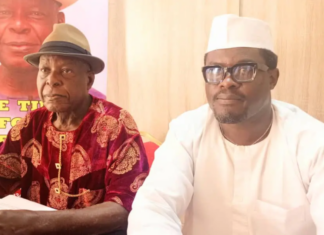Romanticism is the literary era that succeeded the Enlightenment period. It was an intellectual movement that rejected almost all the values of the Enlightenment period.
The Enlightenment period dovetailed into this literary era for obvious reasons.
One of its major deviants was their rejection of rationalism for emotionalism.
The Oxford Advanced Learner’s Dictionary defines Romanticism as “a style and movement in art, music, and literature in the late 18th and early 19th century, in which strong feelings, imagination and a return to nature were more important than reason, order and intellectual ideas – compare Realism.”
So, one of the major reasons why the Enlightenment dovetailed into Romanticism was because a fresh group of writers believed that everything was not about reason, rationalism and order, that there are more to life and living than the above. They identified the emotional part of man, that part that cannot conform to order, rationalism, etc.
Early warning for this period is that Romanticism is different from the romance you know. It has nothing to do with boy meets girl, or falling in love, or getting attracted to the opposite sex. Rather it is about strong feelings, emotions, expression of inner state.
It should be reiterated that what we have been looking at is Western Literature, taking a gradual walk from the Classical or Antiquity period to the Medieval through to the Renaissance/Reformation to the Enlightenment period, and now to the Modern period (Romantic era).
Our destination still remains the African Literature, but we have to pass this way since Western Literature, because of documentation, is very important in literary studies.
The Romantic Era or Romanticism was a literary, intellectual, and artistic period or movement. It originated in Europe (in England, towards the late 1700s and in other parts of Europe from 1800-1850).
We should understand that periods overlap. While men of thought were still in the Enlightenment period, new thoughts and ideas began to germinate and brew in the minds of new writers.
Or, we can put it this way; new writers with entirely different concerns were rising up. So, while the term Romanticism was coined in the 1840s, in England, the idea itself had been planted and begun to spring up in young writers’ minds in the late 1700s.
These fresh ideas that oppose the ideas of the Enlightenment period were seen manifesting in the works of people like William Wordsworth, William Blake, Mary Shelley, John Keats and George Gordon Bryon, etc.
In France, writers like Victor Hugo who wrote the Hunchback of Notre Dame had begun to emerge. And in artworks, artists like Gustave Courtbet and Eugene Delacroix were painting such highly emotional pieces like “The Desperate Man (1844-45)”; “The Man Made Mad by Fear” (Gustave) and “Liberty Leading the People (1830 – Eugene)”
As we can identify, these are issues of the heart.
What Romanticism is:
It is an intellectual movement manifesting itself in arts, literature, music, and intellectual writings with identifiable features.
Characteristics of Romanticism
These include:
- A focus on the emotions or inner world of the writer or narrator,
- Celebration of nature, beauty and imagination
- Rejection of industrialization and social convention
- Idealization of women, children and rural life
- Experimentation with poetic form.
Going by the characteristic of the celebration of nature, the Romantics had a huge crush on nature. They also had a deep interest in ruins and the relics of the Ancient past. They were definitely drawn by the Classical period as they romanced the themes of rebellion, heroism, emotion, sense and sensuality, sublime, etc.
So, they embraced supernaturalism which Enlightenment writers rejected. They also rejected Subjectivity which was one of the features of the Enlightenment as seen in their humanism. The Romantics embraced Objectivity. Not only did they like it, they thought it was achievable.
In fact, the Romantics rejected almost all the values of the Enlightenment writers.
Romanticism is about feelings, about emotions and not about reason. We can safely say it is about using the heart and not the head to judge.
I remember one of our recommended poems in lower Elementary School. We used to chant it sometimes during English Class. It goes:
There was a naughty boy
And a naughty boy was he
He ran away to Scotland
The people there to see –
Then he found
That the ground
Was as hard,
That a yard
Was as long,
That a song
Was as merry,
That a cherry
Was as red,
That a lead was as weighty,
That fourscore
Was as eighty,
That a door was as wooden
As in England –
So he stood in his shoes
And he wondered,
He wondered,
He stood in his shoes,
And he wondered.
By John Keats
In this poem John Keats uses an imaginary naughty boy to reveal the secrets of the hearts of human beings. Many of us human beings, if not all, often dream of perfect places where the grass is greener and life is better. So, our ‘naught boy’ who represents the naughtiness in us all, takes off to Scotland from England. However, on getting to Scotland he finds that things are the same as where he is coming from.
This is not about thinking things through, not about reason or rationalism; this is about feelings, about inner conflicts, emotions. This is about the things of the heart, inner turmoil. Sometimes, we are not satisfied with life.
The Romantics believe in humanism. Their philosophy may not knock off the ideas of the Enlightenment writers completely. I will say that they complement them. There is the head aspect of life, the rationalism, the need to shun supernaturalism sometimes and use one’s head. But, sometimes, humans need to attend to the issues of the heart: the passions, feelings, sentiments, etc. It is an undeniable part of life.
More to come on Romanticism!













